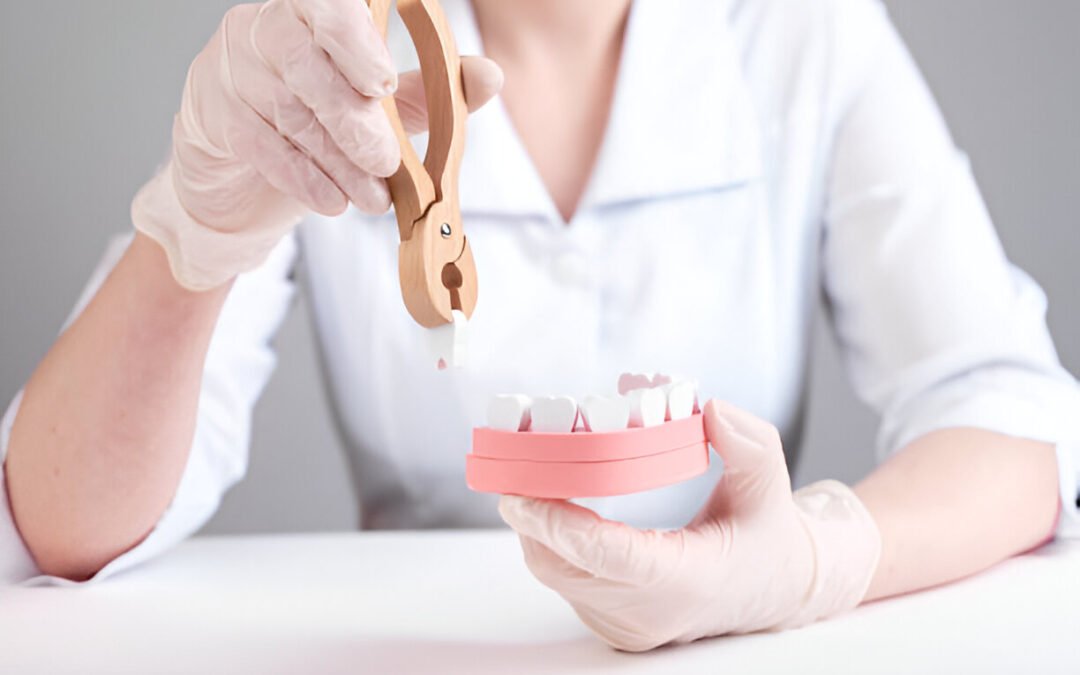Wisdom teeth removal is a common procedure that many people undergo during their late teens or early twenties. While the idea of having teeth extracted can sound intimidating, understanding the process can make the experience smoother. In this comprehensive guide, we’ll walk you through everything you need to know about wisdom teeth removal—before, during, and after the surgery—so you can be fully prepared for your procedure and recovery.
Understanding Wisdom Teeth Removal
Overview of Wisdom Teeth: Why Wisdom Teeth Often Need to Be Removed
Wisdom teeth, also known as third molars, are the last set of teeth located at the back of your mouth. These teeth usually emerge between the ages of 17 and 25. However, wisdom teeth don’t always have enough room to grow in properly, which often leads to complications. Many people need to have their wisdom teeth removed to prevent issues with their oral health.
Common Reasons for Extraction
- Impaction: When there’s not enough space in the jaw, wisdom teeth can become impacted, meaning they don’t fully emerge or grow at an angle.
- Infection: If wisdom teeth don’t come through the gums properly, they can become infected, causing pain, swelling, and even damage to nearby teeth.
- Crowding: Sometimes, wisdom teeth can cause misalignment by pushing against neighboring teeth, especially if your mouth is already crowded.
- Cysts or Tumors: Impacted wisdom teeth can lead to cysts or tumors that might damage the jawbone or teeth.
Before Wisdom Teeth Removal: Essential Preparations
Signs You Need Your Wisdom Teeth Removed
If you experience pain, swelling, infection, or difficulty chewing, your wisdom teeth may need to be removed. Your dentist will help you assess the situation with X-rays and an oral examination.
Pre-Surgery Consultation
A thorough consultation is essential before the procedure. Your dentist will take X-rays to evaluate the position of your wisdom teeth and assess the risks. This is also the time to discuss any health concerns or medications that could impact the surgery.
Choosing the Right Oral Surgeon
When selecting an oral surgeon, consider their credentials, experience, and reputation. A qualified surgeon will provide a safe and effective procedure tailored to your needs.
Anesthesia Options Explained
There are several anesthesia options for wisdom teeth removal:
- Local anesthesia: Numbs only the area around the teeth.
- Sedation: Helps you relax and reduces anxiety.
- General anesthesia: Puts you to sleep during the procedure.
Pre-Surgery Care
Before the surgery, follow any dietary restrictions and instructions given by your dentist. If you are undergoing sedation or general anesthesia, you may need to fast for a few hours before the procedure.
The Wisdom Teeth Extraction Procedure: What to Expect During Surgery
Step-by-Step Breakdown of the Surgery
The procedure typically begins with the administration of anesthesia. Once you are relaxed, the surgeon will make small incisions in the gums to access the wisdom teeth. In some cases, the teeth may need to be broken into smaller pieces for easier removal. Once the teeth are extracted, the surgeon will stitch up the incisions, and gauze will be placed to control bleeding.
Surgical Techniques
- Simple extractions: These are performed when the wisdom teeth have erupted fully and are easy to remove.
- Complex extractions: If the teeth are impacted or stuck under the gums, more extensive surgery may be required.
Duration of the Procedure
The entire process usually takes between 45 minutes to 2 hours, depending on the complexity of the extraction.
Pain Management During Surgery
Pain is managed with local anesthesia, sedation, or general anesthesia. Most patients feel little to no pain during the procedure.
Wisdom Teeth Recovery: The First 24-48 Hours
First 24 Hours
- Apply ice packs to reduce swelling.
- Bite down on gauze pads to control bleeding.
- Stick to soft foods like yogurt, mashed potatoes, and smoothies.
- Avoid drinking through a straw to prevent dislodging the blood clot and causing a dry socket.
Managing Pain
You may be prescribed painkillers for the first few days. Over-the-counter medications like ibuprofen or acetaminophen can also be used to manage discomfort.
Managing Discomfort and Pain After Wisdom Teeth Removal
Common Post-Op Symptoms
- Pain: Some pain is normal and will subside within a few days.
- Swelling: This is typical and should start to go down after 48-72 hours.
- Bruising: Bruising of the cheeks or jaw is common and will fade with time.
- Dry Socket: This occurs when the blood clot is dislodged, leaving the bone exposed. It’s one of the most painful complications.
Wisdom Teeth Healing Process: What to Expect Over the Next Few Weeks
Healing Phases
Your recovery will be divided into phases:
- First few days: Swelling and discomfort are at their peak.
- 1-2 weeks: Swelling begins to subside, and you may still experience some discomfort.
- 3-4 weeks: Most patients are feeling better, though full recovery can take several months.
Follow-Up Appointments
A follow-up appointment is typically scheduled 7-10 days after surgery to remove stitches (if non-dissolvable) and check the healing process.
What to Expect with Stitches
- Dissolving stitches: These will dissolve on their own within a few weeks.
- Non-dissolvable stitches: These will need to be removed during a follow-up visit.
Diet Recommendations
Stick to soft foods during the recovery period. Gradually introduce more solid foods as you feel comfortable.
What Happens if Wisdom Teeth Are Not Removed?
Impacted Wisdom Teeth and Their Complications
Leaving wisdom teeth untreated can lead to infections, damage to neighboring teeth, and even cysts that could affect your jawbone.
Long-Term Consequences of Delaying Removal
Without removal, impacted wisdom teeth can cause pain, gum disease, misalignment, and sinus issues. Regular dental checkups can help monitor potential problems.
Addressing Special Concerns: Wisdom Teeth Extraction for Different Patients
For Older Patients
As you age, healing may take longer, and complications like nerve damage are more likely. Consult with your oral surgeon to understand the risks and benefits for your situation.
For Teens
Teens generally recover faster and experience fewer complications than older adults. It’s often recommended to have wisdom teeth removed in your teens or early twenties.
Patients with Medical Conditions
Conditions like diabetes, heart disease, or immune disorders may affect recovery. Make sure to inform your oral surgeon about any pre-existing health conditions before surgery.
Conclusion: The Road to Full Recovery
Wisdom teeth removal is a routine procedure, but understanding the process can help alleviate anxiety and ensure a smooth recovery. By following the steps outlined in this guide—from preparation to post-surgery care—you can ensure the best possible outcome. A healthy, pain-free mouth will help you maintain optimal oral health for years to come.
For personalized care and expert wisdom teeth removal, contact our team at Kanupriya’s Dental Care today!

